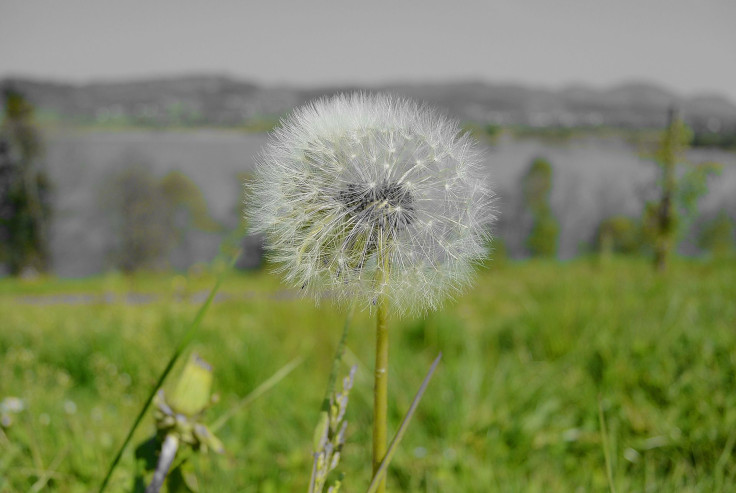Climate Change Is Making Allergy Season Worse, Here Are Some Tips To Alleviate Your Symptoms

If you’re suffering from allergies more than in previous years, climate change might have something to do with it.
People may get seasonal allergies during the spring, summer and early fall, and it’s usually caused by sensitivity to airborne mold spores or to pollens from trees, grasses or weeds, the American College of Allergy, Asthma & Immunology notes. However, some people could experience symptoms year-round (called perennial allergic rhinitis ) because of indoor allergens from pets, mold, dust mites and cockroach residue, according to the American Academy of Allergy, Asthma & Immunology (AAAAI).
Read: Climate Change Impacts: American's Health Hurt By Global Warming, Doctors Say
“We know that first of all allergies are very common,” Dr. Nitin S. Damle, immediate past president of the American College of Physicians (ACP), told International Business Times, adding allergies and asthma are tied together.
However, Damle noted there is an increased pollen count in America, and climate change is extending allergy season.
Allergies and Climate Change
“Part of it is related to climate change,” said Damle of seasonal allergies. “It gets people really super sensitized, more than in the past. It’s something that people come in with quite frequently,” he said. “Climate change is affecting the allergy season, the number of people suffering allergies and severity.”
Damle pointed to climatic events, such as flooding, increase in droughts and wildfires, more heat waves and increased air pollution all play a part in health effects, like increasing allergies, asthma and other respiratory illnesses.
Because of climate change, this allergy season has extended compared previous years, Damle said.
“The season has lengthened starting more in February versus April and May, and has gotten longer,” he said. “It would end September or October. We’re seeing it extend to November.”
However, Damle said he doesn’t think -- and hope -- the season will not continue to extend and that “the lengthening of the season will probably stay the way it is now.”
AAAAI Executive Vice President Dr. Thomas Casale also said some climatic events have contributed to a higher number of allergy cases.
“Warming trends along with increases in carbon dioxide have been associated with prolonged pollen periods,” Casale who was among the authors of the 2015 study Views of Allergy Specialists on the Health Effects of Climate Change, told International Business Times. “Climate changes can also affect ecosystems, manifested as a greater abundance of stinging and biting insects and their presence in new areas. This can be problematic for individuals allergic to stinging insects like yellow jackets, bees and wasps.”
What To Do To Calm Allergy Symptoms
Damle said air pollution has a lot to do with allergies, adding that staying indoors on high pollution days is very important.
It’s also a good idea to stay indoor during times of high pollen and mold counts.
“Avoidance of outdoor activities during peak pollen times can be helpful as can staying indoors and shutting the windows and using air-conditioning,” said Casale. “For example, during ragweed season, it is best to be outdoors very early in the morning or later in the evening.”
Casale also had advice for those who tend to skip days in washing their hair.
“If you have been outdoors during peak pollen periods, wash your hair before going to sleep since the pollen sticks to your hair.”
Read: How Climate Change Will Affect Your Neighborhood: Check Out This NOAA Tool
Damle and Casale also recommend seeing an allergist. Damle said you should get your skin tested to see what kind of allergy you have since some people are allergic to certain things, such as weeds, fungus, grass and other plants. The allergist will be able to give you a shot when he or she has identified the allergen to alleviate your symptoms. However, Damle said cases like that are not that common.
“Seeing an allergist/immunologist to determine exactly what you are allergic to can be helpful,” said Casale. “Allergists can consul you as to appropriate times to avoid outdoor exposures and provide a comprehensive medical plan including allergy immunotherapy, or allergy shots.”
Damle also recommended nasal sprays like Flonase, which is available over the counter. Flonase is a spray used once a day and temporarily may relieve allergy symptoms, such as nasal congestion, runny nose and sneezing. Daily pills like Singulair could also help with symptoms.
Casale said there are many over-the-counter medications that can help those suffering from allergies, including nonsedating antihistamines and intranasal corticosteroids.
You should also be aware of your surroundings by paying attention to what you have in your house or at work.
“Watch your environment, what you have in your house, the carpet, bedding, pets, those are things you should be avoiding,” said Damle.
© Copyright IBTimes 2025. All rights reserved.




















